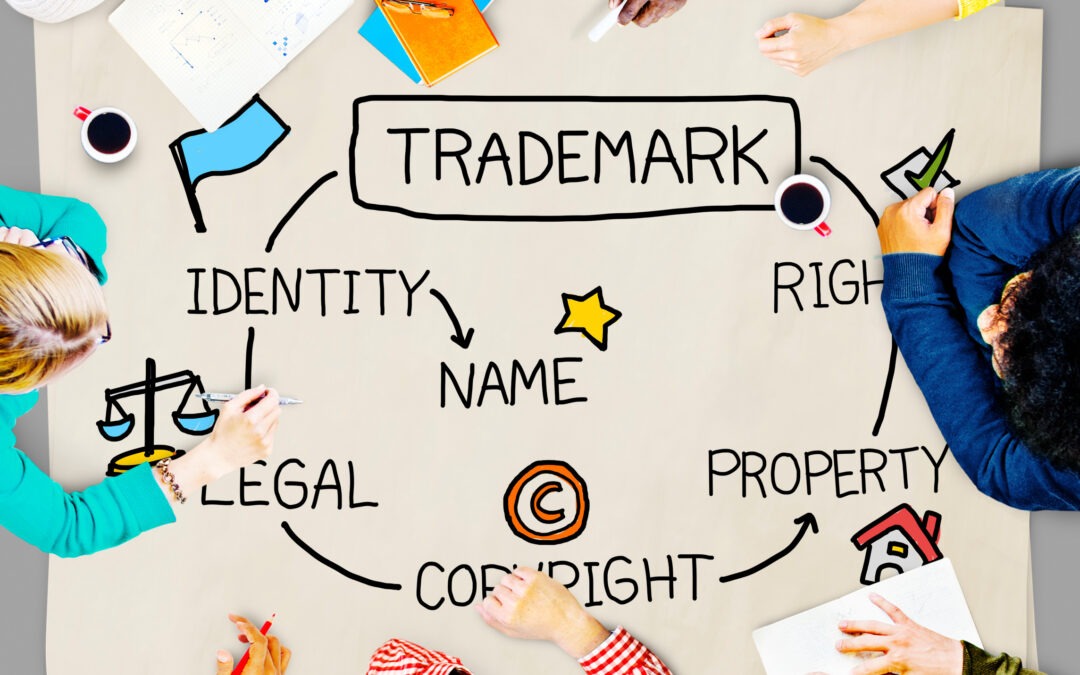What is a trademark?
It is a source identifier. A thing we call a device that tells consumers where a product or a service originates from. A trademark can be a word, a logo, a design, a phrase, a slogan, a color, a sound, a fragrance, or a combination of these devices. The key is that it identifies the source of goods and/or services. It’s the way customers distinguish the products and/or services of one vendor over another.
Types of Trademarks.
There are four types of trademarks:
- Trademarks – identifies the source of products. Some examples are Mercedes Benz for land vehicles, Range Rover for automobiles, Burger King for restaurant services, Roku for computer hardware.
- Service Marks – identifies the source of a service. Some examples are American Airlines for air transportation of passengers; Starbucks for coffee, tea, cocoa, and prepared beverages; Facebook for online virtual communities.
- Collective Marks — A trademark or service mark owned by an association, but applied by the individual members to their goods and services. Examples are YMCA of the USA for promoting the interests of organizations engaged in the promotion of the physical, mental, and spiritual development of others.
- Certification Marks – A trademark used by anyone who meets the qualifications of the certifying organization. A mark that certifies that goods/services meet certain quality, materials, or manufacturing standards, or that the supplier belongs to a certain union or organization. An example is the Good Housekeeping logo.
Do you own a Trademark?
Often people think if you have a trademark, you legally own it and can prevent others from using it. That’s not necessarily true. You don’t own the trademark; you simply own how the trademark is used in relation to your specified goods and/or services. Here’s an example of what I mean.
Suppose you have a coaching business and use a logo as your trademark. That logo is designed to distinguish your coaching services from the coaching services of other business coaches. You might be able to stop another coach from using a similar logo, but it would be unlikely that you could stop a non-coaching business with unrelated goods and/or services.
Take away.
If you have a product or service, consider a trademark as a way to distinguish your product and/or service from others who engage in the same or a similar business.

Francine D. Ward
Attorney-At-Law, Author, Speaker
Follow Francine:
Don’t miss Francine’s Latest Blogs:
- Sweepstakes ScamsSweepstakes Scams. The Federal Trade Commission (FTC) has settled with several operators of a sweepstakes scam. The scam bilked consumers out of millions of dollars. Included in the settlement agreement,… Read more: Sweepstakes Scams
- Incapacity PlanningIncapacity Planning. Incapacity is an unexpected wrinkle in your estate plan. I am a planner. I make plans, I like making plans, and sometimes my plans go awry. Despite any… Read more: Incapacity Planning
- Publishing contractsPublishing contracts The publishing contract is an agreement that defines the relationship between an author and her publisher. Publishing contracts typically contain elements that speak to territory, rights, ownership, financial… Read more: Publishing contracts
- What is a Habit?As we enter springtime, you may feel far away from your New Year’s resolution. That may be because of the success rate of NYE resolutions. In fact, January 17 is… Read more: What is a Habit?
- Common Contract MistakeCommon Contract Mistake #1. Not Having Written Agreements with EVERYONE You Do Business With. Common contract mistake. Without question, the most common contract mistake is not having the terms of… Read more: Common Contract Mistake











